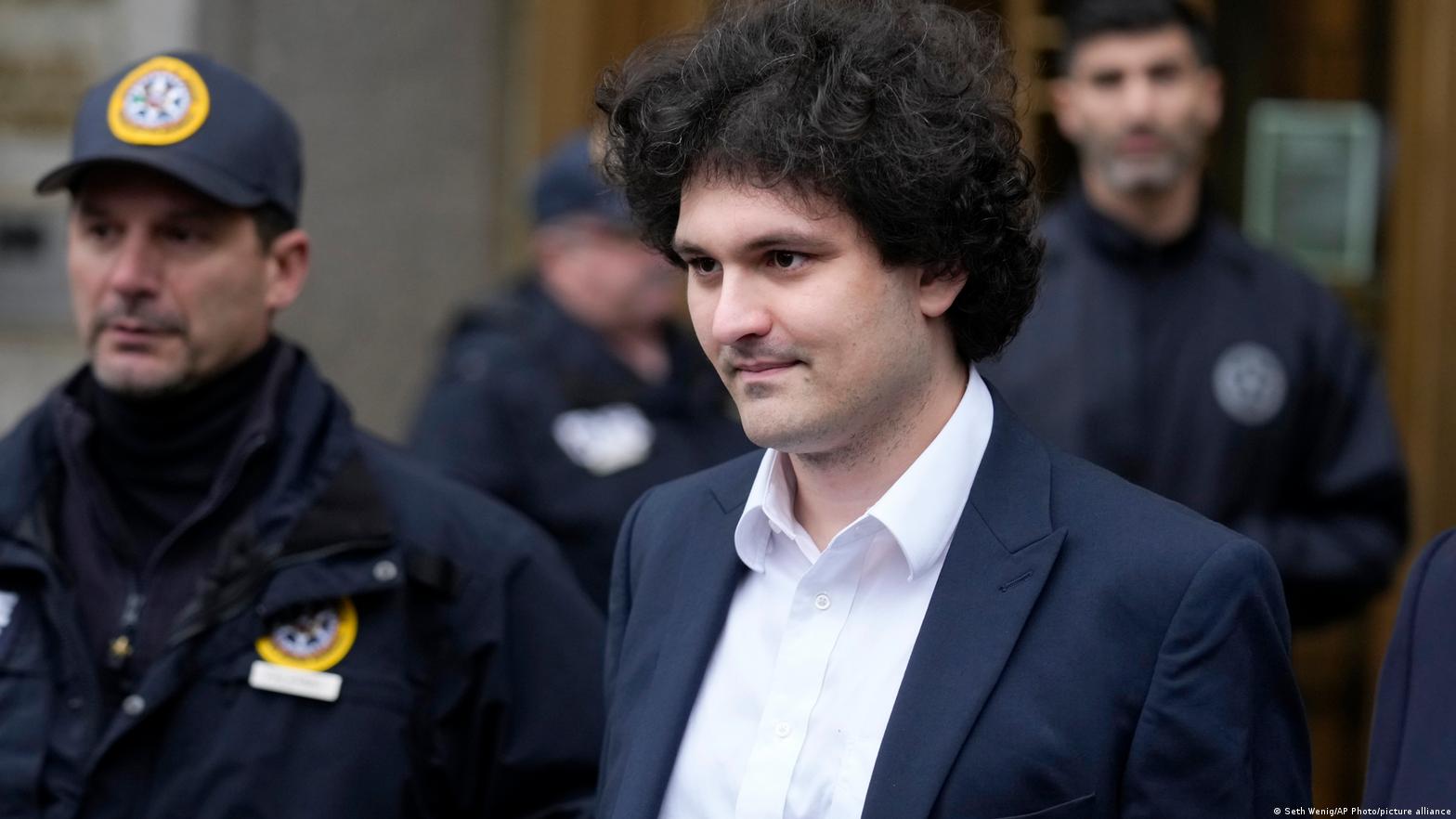Sam Bankman-Fried, known in the cryptocurrency community as “SBF,” founded the now-collapsed cryptocurrency exchange FTX in 2019, after launching the hedge fund of crypto assets Alameda Research in 2017. Prior to his involvement in the cryptocurrency sector, he worked as a stock trader on Wall Street. At his peak, Bankman-Fried had a fortune of 26 billion dollars (about 24 billion euros).
In 2020 and 2021, there was a meteoric rise of bitcoin and digital assets. During that time, Bankman-Fried – known for his curly, unkempt hair – became a symbol of responsibility in the cryptocurrency sector. That reputation played a key role in FTX’s success and survival when market conditions eventually took a turn for the worse. Under Bankman-Fried’s leadership, notable branding efforts, celebrity endorsements, and generous acts of philanthropy helped FTX, and cryptocurrencies in general, build its reputation in the public eye, before its collapse in 2022.
What accusations is Sam Bankman-Fried facing?
The 31-year-old American now faces seven charges of fraud and conspiracy, including allegations of embezzling funds from FTX depositors. The trial in New York began on October 3 with the jury selection process, and is expected to last six weeks.
Prosecutors claim that the actions of Bankman-Fried and her close colleagues jeopardized the availability of funds to their users, leading to the collapse of FTX as cryptocurrency prices fell.
When the run of cryptocurrencies on the market ended, in 2022, Bankman-Fried assured that his business was in good health. In reality, his company had also been hit hard by the drop in the value of cryptocurrencies. Alameda borrowed money to invest in bankrupt digital asset companies before reportedly diverting FTX client deposits to meet its own immediate financial obligations.
Bankman-Fried is alleged to have ordered FTX’s former chief technology officer, Gary Wang, to make changes to the exchange’s computer code to allow Alameda to borrow unlimited sums of money, a privilege not granted to other users.
This allowed Alameda to borrow significant funds from FTX. Prosecutors argue that Bankman-Fried used FTX deposits to cover losses at Alameda, engage in personal real estate transactions and contribute to political campaigns.
What made FTX collapse?
Starting in 2021, increasing regulatory controls and rising interest rates pushed many traders away from riskier assets, such as cryptocurrencies, toward more traditional investments.
In November 2022, cryptocurrency news website CoinDesk published a document claiming that Alameda had substantial exposure to FTT, a crypto token issued by FTX itself.
That revelation caused a further loss of customer trust, causing a significant outflow of funds from the exchange, from which FTX could no longer recover. The vast majority of Bankman-Fried’s fortune evaporated overnight. Today, the company is bankrupt. Bankman-Fried was arrested in the Bahamas in December 2022 and extradited to the United States.
What can be expected from the trial?
Bankman-Fried pleaded not guilty. He admitted that he carried out inadequate risk management but denied stealing funds. His defense argued that Bankman-Fried believed his treatment of client funds was consistent with FTX’s terms of service and the law, emphasizing a “good faith” belief.
Prosecutors plan to call former members of Bankman-Fried’s inner circle who have pleaded guilty and agreed to cooperate. Bankman-Fried’s defense aims to prove that FTX’s collapse was the result of trading errors, and not a deliberate fraud scheme.
The key to the trial will be determining when exactly Bankman-Fried knew of the financial difficulties his companies were facing and whether he intended to commit a crime.
U.S. District Judge Lewis A. Kaplan is overseeing the case. He previously handled defamation lawsuits against former US President Donald Trump and a sexual abuse lawsuit against Britain’s Prince Andrew.
Kaplan said Bankman-Fried could serve a “very long sentence” if convicted. In fact, he faces a maximum sentence of 110 years in prison, although the judge will hand down a final sentence based on a number of factors. And this is likely to be much smaller.
What does this mean for the cryptocurrency market?
The legal issues surrounding Bankman-Fried and the collapse of FTX, once a leading cryptocurrency exchange, contributed to increased uncertainty surrounding that industry.
“The fall of FTX could be the kickoff for a broader debacle, perhaps even the demise of cryptocurrencies,” Bankrate senior reporter James Royal told CNBC when FTX went bankrupt.
With a high near $70,000 in November 2021, in early 2023, the value of the well-known cryptocurrency bitcoin fell below $17,000. In recent months, bitcoin has hovered around $30,000.
Cryptocurrency investments, which are generally considered a highly speculative asset, continue to be affected by high interest rates around the world.
(cp/rml)
